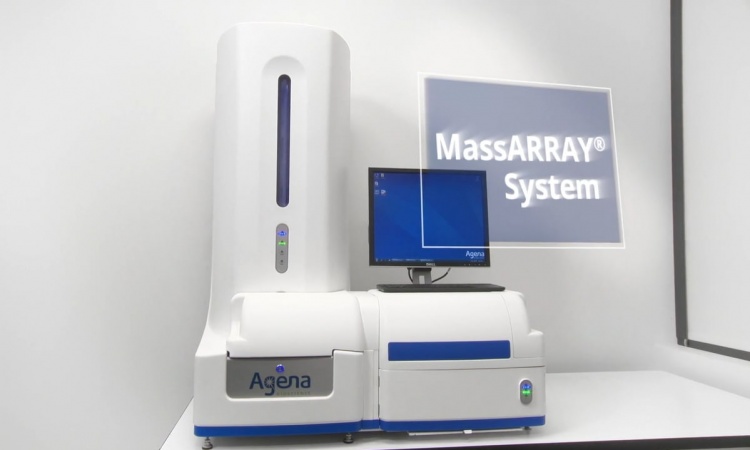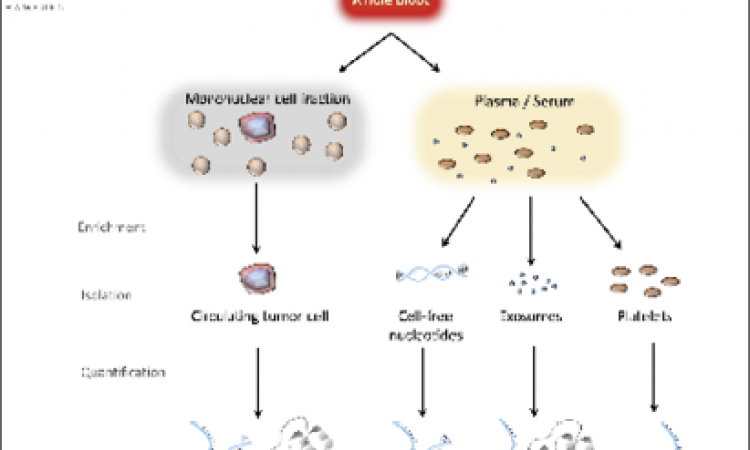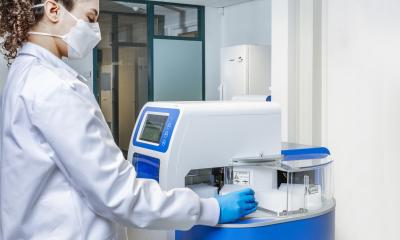Mass spectrometry
Rapid, reliable cancer diagnostics
Cancer patients today can benefit from much better drugs providing treatments tailor-made to specific mutations. However, broad application is still hampered by a considerable bottleneck: fast, reliable, and cost-effective diagnosis. Agena's MassARRAY platform is addressing this bottleneck with an elegant new solution.
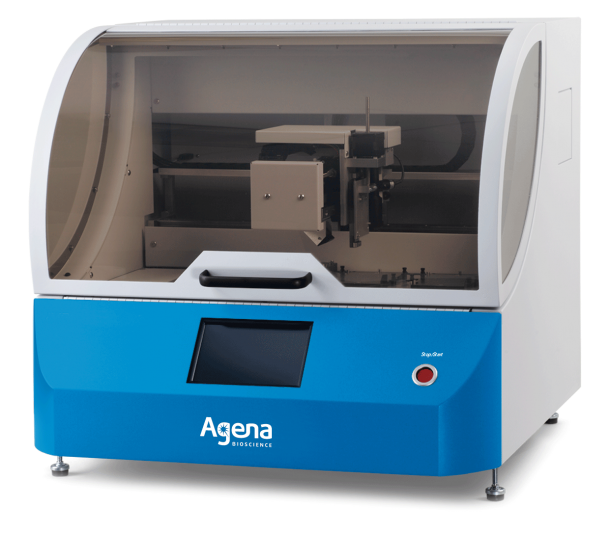
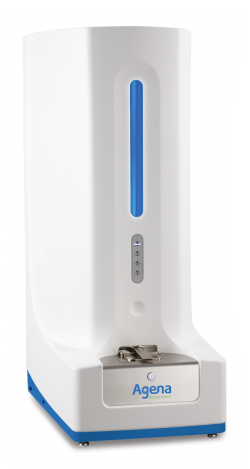
Cancer is characterized by a broad variety of mutations that enable tumors to escape surveillance and elimination by the immune system and to achieve unrestricted growth. With hundreds of mutation(s) identified, researchers and pharma companies are working to design a growing number of compounds able to interfere with these specific mechanisms. With the advent of the first of these targeted cancer drugs, oncology has entered into the area of personalized medicine.
However, before the best suited drug can be prescribed to the patient, it is necessary to analyze the patient's tumor to establish which of the known mutations is or are present. This analysis today is performed by sequencing and fluorescence in situ hybridization (FISH) analysis to identify amplifications, point mutations, deletions, insertions, and gene fusions. The entire process is time-consuming and requires a substantial amount of tumor material so that many patients have to be prescribed a drug before test results are available.
But now a faster and easier to perform technology is available. It is based on mass spectrometry using MALDI-TOF, which is a long established tool in clinical labs, e.g. to identify pathogens in clinical microbiology. As the technology is applicable to all sorts of biological macromolecules, it is also being used in research labs around the world for the analysis of nucleic acids. The approach is well-proven for the accurate identification of somatic mutations, SNPs, insertions, and deletions as well as DNA methylation from a variety of sample types, as illustrated by over 2,500 publications in oncology, pharmacogenetics, inherited disease, blood group genotyping, and others.
Therefore, Agena Bioscience GmbH, a pioneer of the MALDI-TOF-based MassARRAY technology for the analysis of genes and genetic variants, has introduced a CE-IVD certified mass spectrometry system for clinical cancer diagnostics to the European market. Agena's MassARRAY Dx platform identifies a broad spectrum of mutations involved in cancer. It consists of the MassARRAY Dx Colon Panel, the MassARRAY Dx Lung Panel and the MassARRAY Dx instrumentation (MassARRAY Dx Analyzer 4, MassARRAY Dx Nanodispenser RS 1000).
The MassARRAY Dx Colon Panel simultaneously analyzes over 200 mutations in the four major oncogenes involved in the pathogenesis of colorectal cancer (KRAS, BRAF, NRAS, PIK3CA).
The MassARRAY Dx Lung Panel simultaneously analyzes over 300 mutations in 10 genes implicated in the pathogenesis of lung cancer (EGFR, KRAS, BRAF, PIK3CA, NRAS, ALK, ERBB2, DDR2, MAP2K1, and RET).
Both panels can detect mutation frequencies as low as 5% and are based upon clinical practice guidelines recommended by the European Society for Medical Oncology (ESMO) for diagnosis, treatment and follow-up for metastatic colorectal cancer and metastatic non-small-cell lung cancer (NSCLC), respectively.
The panels come with the necessary reagents for Agena's proprietary iPlex chemistry to amplify specific gene regions from tumor DNA and to identify somatic mutations in up to 15 genomic positions in a single reaction. The process requires not more than 40 ng of DNA extracted from a broad variety of tumor samples as starting material, e.g. fresh, frozen, paraffin-embedded tissues (FFPE) and fine-needle-aspirates (FNA). The extension products are then dispensed onto Agena's SpectroCHIP arrays using the MassARRAY Dx Nanodispenser RS1000. Each SpectroCHIP has a capacity of up to 10 patient samples and 2 controls per plate. When loaded into the MassARRAY Dx Analyzer 4, the SpectroCHIP is analyzed in 15 minutes. An automated software report provides the calls and mutation frequencies for each sample. The entire process from extracted DNA to report can be performed in a single 8 hours work day. The MassARRAY Dx System can analyze two plates in parallel and multiple plates per day, providing accurate and parallel processing of multiple patient samples every day.
The variant alleles are called in real-time, eliminating the need for complex bioinformatics. The Analyzer uses Matrix-Assisted Laser Desorption Ionization Ð Time of Flight (MALDI-TOF) for the precise detection of DNA molecules. Using a principle similar to gel electrophoresis, the DNA molecules are distinguished by their time-of-flight, hence their molecular mass, after being ionized in a vacuum chamber. Direct analysis of the mass of the molecules eliminates the need for fluorescence or other labeling.
The technology is quite elegant, offering molecular pathologists a unique combination of reliability, sensitivity, ease-of-use, and cost-effectiveness for targeted genetic testing. The multiplexed MassARRAY assays allow the user to concurrently analyze the relevant oncogenes and thereby reduce costs and turnaround time compared to existing methods. The two test panels support personalized treatment and improve patient care through rapid analysis of clinically actionable mutations implicated in lung and colon cancer.
The technology is future-proof: Agena can modify panels easily once novel mutations are identified and validated, and the company is also working to design novel panels for additional cancer indications. As the technology is based on MALDI-TOF mass spectrometry, it is also suited to identify DNA methylation, a modification that only recently has been added to the diagnostic arsenal of oncology and that cannot easily be identified with sequencing.
Moreover, clinics are free to use the instruments for other purposes, e.g. clinical microbiology as well as open-channel capabilities in a research use only (RUO) capacity for applications including pharmacogenetics, oncology, and inherited disease screening.
02.08.2016
- DNA (170)
- genetics (408)
- Labbook (54)
- laboratory (1111)
- mass spectrometry (78)
- medical technology (1554)



